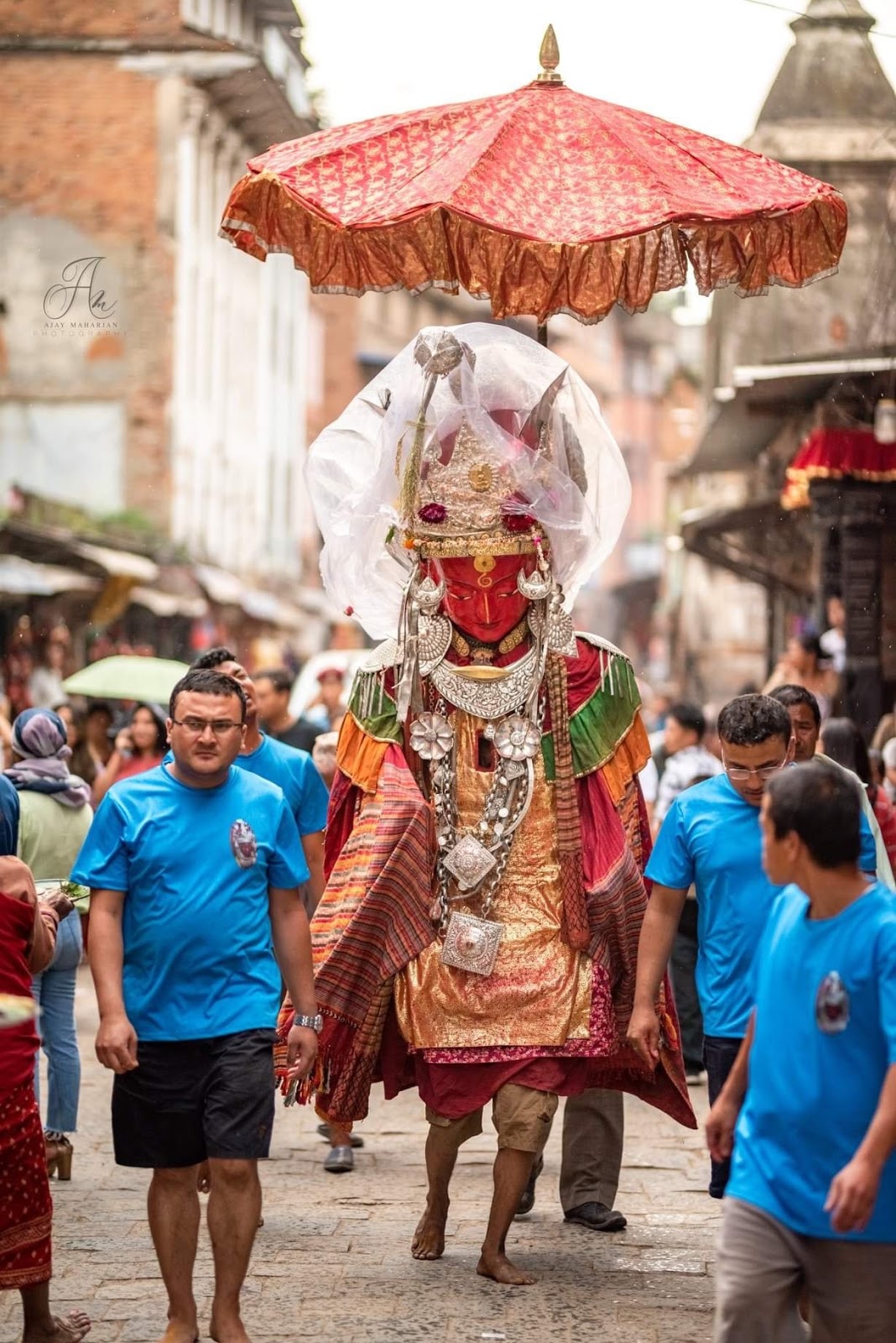Man walking as Dipankar Buddha for alms during Panca Daan Festival Bhaktapur | Image: Ajay Maharjan, 2019
What is Pancha Daan?
Pancha Daan is a significant Buddhist festival celebrated primarily by Vajrayana Buddhists, especially among the Newa community in Kathmandu Valley. It occurs annually on the 14th day of the dark half of the holy month of Gunla. During this festival, offerings of five essential elements - wheat grains, rice grains, salt, money and fruit to the member of the Shakya and Bajracharya clans. People also donate other things based on their desire and capacity, complementing the primary act of Daan, symbolizing generosity.
Significance of Daan
Daan, or the act of giving, holds profound significance in Buddhist philosophy as a means to accumulate merit and progress towards enlightenment. It is emphasized that donations should be made selflessly, without expecting anything in return, as sincerity of intention is paramount. Donating on the day of Pancha Daan is considered particularly auspicious, believed to yield great merits that extend into one's next life.
Invitation to Dipankar Buddha
Many eons ago, during Satya Yuga, King Sarvananda graciously invited Dipankar Buddha (one of the predecessors of Lord Shakyamuni Buddha) and his disciples to a royal feast at the palace. Lord Buddha accepts the invitation, and the news spread quickly throughout the kingdom. Hearing of the Buddha's visit, an impoverished elderly woman named Laxmi Thakun, who worked as a cleaning lady to make ends meet, felt a heartfelt desire to donate a portion of her savings as a donation to the Buddha.
Upon arriving in the King Sarvananda's town, Dipankar Buddha, upon learning of Laxmi Thakun's desire to donate, makes a detour to her house to accept her donation before proceeding to King Sarvananda's palace. The King was already made aware of Dipankar Buddha's visit to the woman's home. King expresses dissatisfaction to the Buddha with the delay caused by the stop, despite all the preparations made for him and his disciples' arrival at the palace.
Dipankar Buddha responds to the King, highlighting the significance of the elderly woman's modest donation. He explains that her contribution, coming from her diligent efforts and pure heart, holds greater value than the offerings prepared by the King, which were funded through taxing hard-working citizens. Dipankar Buddha emphasizes the importance of her selfless gesture.
Dipankar Buddha informs the King that he will only accept donations earned through honest labor. In response, the King disguises himself and works as a blacksmith, saving his earnings to offer to the Buddha. He then offers the money earned from his own labor to the the Buddha. This transformative event led to the establishment of the tradition of celebrating Pancha Daan to this date. The day of giving, symbolizing genuine selflessness and hard work, perpetuating the spirit of compassion and generosity

Moral of the Story
Generosity
has no financial constraints; even the smallest selfless donation is reciprocated
by nature exponentially. There is a common
misconception that links donation solely to monetary value, yet it encompasses actions
like aiding disabled, caring for animals, helping someone in need, feeding animals, etc. Donation is a precious jewel, a person who donates will
always shine like a precious jewel. The merits you earn from Donating would
keep you away from ending on the wrong path in life. In conclusion, Daan is one
of the three noble things – दान (donation), शिल (rules), भावना (feelings), one can perform, to get closer towards enlightenment. Updated: 08/08/2023
Acknowledgments
|




Comments
Post a Comment